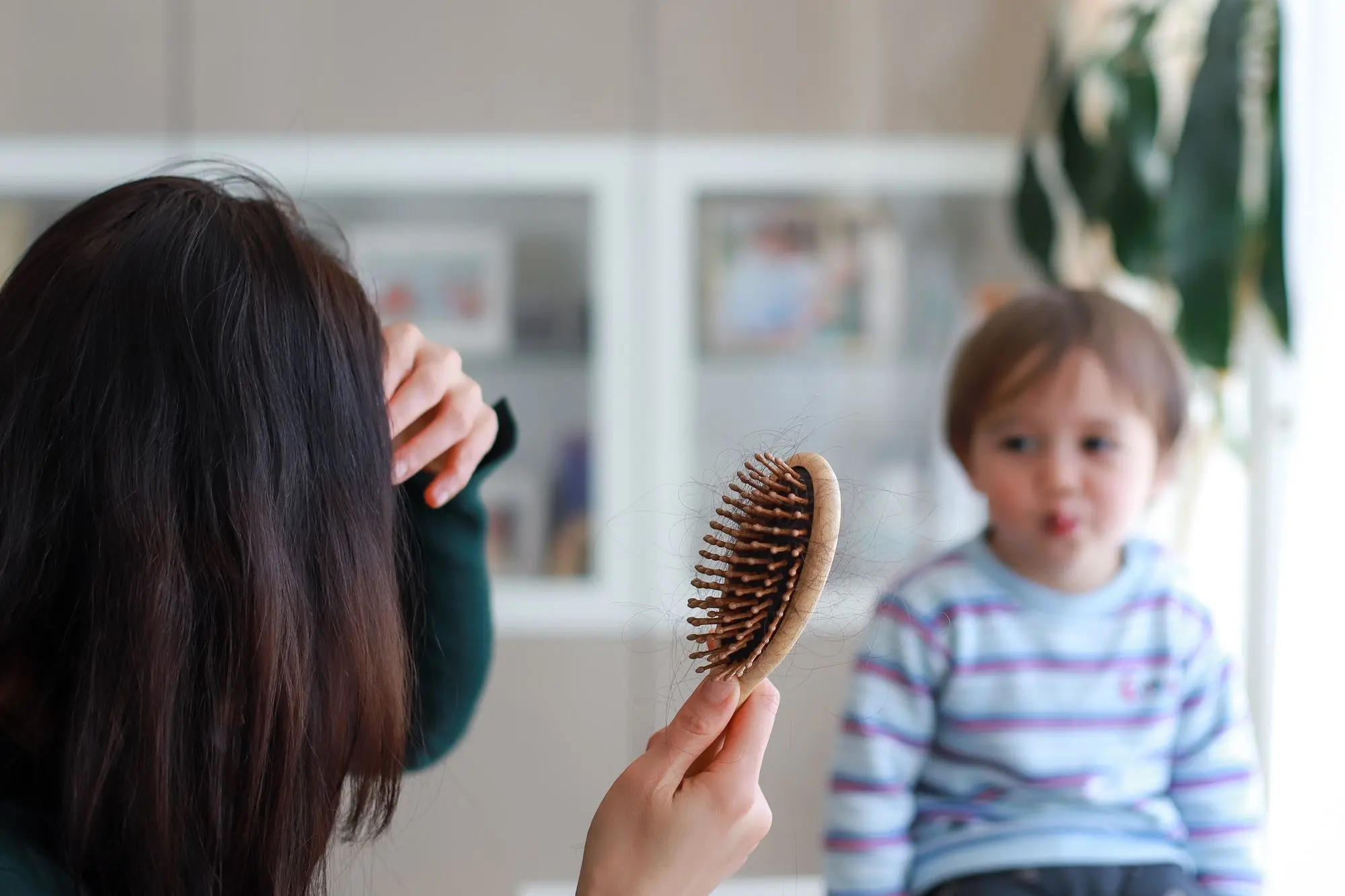A few months after having a baby, many new mothers experience noticeable hair loss. This is typical and not actual hair loss. This disorder is known as excessive hair shedding. Falling levels of estrogen are the main reason of the excessive shedding.
The good news is that you can ignore this excessive shedding because it is just temporary. By the first birthday of their baby, the majority of mothers notice a return to their hair's typical fullness. Even earlier, for many women, fullness returns to normal.
What Causes Postpartum Hair Loss?
On average, your scalp has 80,000 to 120,000 hairs, and you can lose up to 100 of them per day. You lose more than 100 hairs every day when you have postpartum hair loss. Many hairs in the anagen phase (the growth phase) abruptly enter the resting phase (telogen) as a result of pregnancy hormones. A few months later, you would start noticing hair loss.
Postpartum hair loss is brought on by changes in the hormone estrogen during and after pregnancy. The last trimester of pregnancy sees an increase in estrogen levels. This stops the usual hair shedding. During this time, you could notice that your hair is thick and luxuriant.
Estrogen levels decrease following delivery. As a result, a lot of hairs start their resting period of growth. These hairs begin to fall out after several months.
How to Prevent Postpartum Hair Loss?
Postpartum hair loss cannot be stopped by any means. However, being aware of it beforehand could be advantageous so you're not taken aback if it does occur.
You can consider taking some vitamins to support postpartum hair health and development. These include the following:
Vitamin C to make collagen, a protein that keeps hair strong
Vitamin A for sebum production, an oily substance that hydrates the scalp and supports the health of our hair
Biotin, which is necessary for the synthesis of keratin, a protein that maintains the health of our hair
Zinc to maintain the health of the oil glands surrounding the follicles
Iron a crucial component for maintaining healthy, strong hair because iron deficiency is frequent in women and can result in hair loss
Calcium, which releases of hormones and enzymes that are involved in bodily functions including healthy hair growth
How to Treat Postpartum Hair Loss?
Even though it may be upsetting, postpartum hair loss is merely a passing phase. Less than six months should pass after the shedding. By the time your child turns one, your hair ought to be back to its normal fullness.
Although there is no cure for postpartum hair loss, you can make your hair look and feel fuller by following these steps:
Select a volumizing shampoo and conditioner. Your hair might gain body using lighter conditioners and volumizing shampoos. To identify the products that are ideal for your hair type, you might need to experiment.
Take good care of your hair. When washing and combing your hair, use caution. To avoid damage, use the styling irons' and blow dryers' lower heat settings. Avoid pulling your hair tight in braids and ponytails because this might cause greater hair loss.
Alter your hairstyle. Your hair may appear thicker with shorter haircuts. They are also simpler to maintain, which is advantageous if you just had a baby.
Make sure you're eating a healthy diet and obtaining the nutrients you need for hair development. If you want to enhance your diet with vitamins, talk to your healthcare provider to discuss which vitamins best suite you!
To sum, getting used to having a new baby can be difficult. Anxiety and stress might increase as a result of postpartum hair loss. However, hair loss after childbirth is both frequent and typical. While you wait for your hair to regrow, the appropriate hair products and hairstyle can help even though you can't prevent it. Your hair should have fully grown out again by the time your child turns one.
Moms around the world trust JOHNSON’S® to care for their babies
We are committed to working with moms, healthcare experts, and scientists to ensure our products continue achieving the highest standards in safety, quality, and care.
